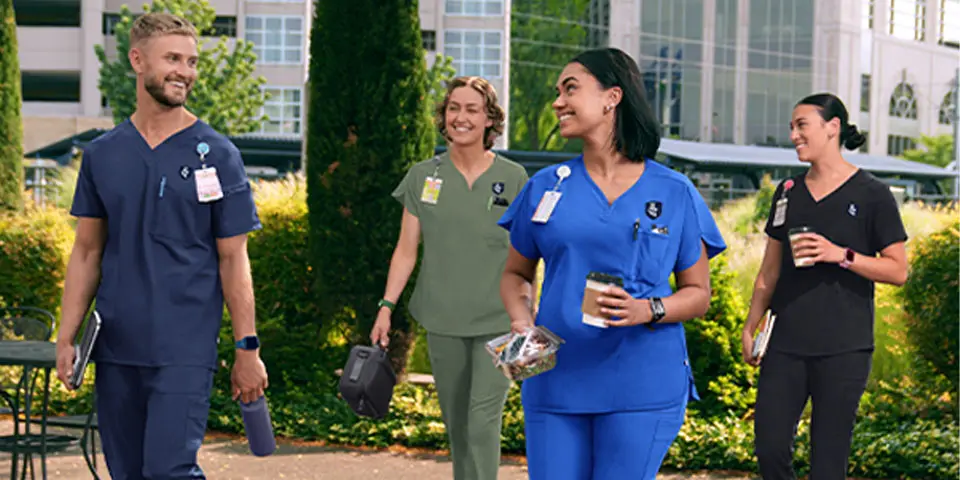A Guide to Industries and Their Unique Uniforms

Different industries have different unique uniforms that are designed according to the aesthetic and functional needs of what a given industry’s jobs entail. We are all familiar with some common uniforms, like those worn by firefighters and astronauts. But we may not realize that many other industries require uniforms too. Read on to understand more about custom uniforms by industry type.
Restaurant Industry
The restaurant industry is one of the more creative industries when it comes to uniforms. Depending on the type of restaurant or ethos, a restaurant often chooses its uniform accordingly. Different kinds of staff who work at a restaurant will often wear different uniforms that better fit their particular role at the restaurant.
For example, chef and cook uniforms often entail white chef hats and chef coats, whereas servers will wear aprons with pockets for their pens and order pads. A restaurant’s unique uniform choices can say a lot about the kind of establishment it is. A tequila and taco joint may require their employees to wear fun custom-made t-shirts as a uniform, while a Michelin-starred restaurant typically requires servers to wear plain button-up shirts with uniform work pants. While the restaurant industry has room to be creative with their uniforms to align them with their restaurant’s brand, these uniforms serve a practical purpose.
Hospitality Industry
Similar to uniforms in the restaurant industry, hospitality industry uniforms are creatively based on branding while also being practical for the roles of employees. In a hotel or resort, different members of the team will be wearing unique uniforms to reflect their jobs. For example, the concierge and the front desk will often wear a uniform that is styled according to the hotel or resort’s ethos while also looking formal. Housekeepers, bellhops, and other staff members will also have their own uniforms that reflect their role in the hotel.
Typically, hospitality uniforms include shirts and uniforms that have the name tag or embroidered name of the wearer to help guests feel more at home. It is also common for uniforms to be colored and styled according to the branding of the hotel. For example, staff at a resort in the Caribbean may wear tropical-print shirts, whereas staff at a New York City hotel are more likely to wear a uniform that’s considered more business formal.
Healthcare Industry
Healthcare industry workers have a wide range of uniforms that are less concerned about style and more focused on practicality. Especially if they are working in a hospital, doctors and nurses wear their uniforms completely for function. Custom scrubs are the standard healthcare uniform. Lightly colored, durable, and comfortable, they are perfect for working in the sterile conditions of a hospital. Within their office practices, doctors often wear a white doctor’s coat over streetwear.
Aviation Industry
Pilots and flight attendants can easily be picked out from a crowd, and you can probably tell whom they fly for just by appearances. This is because the aviation industry uniforms have a signature look. Colors and designs will change according to the branding of each airline. Regardless, pilots and most flight attendants still wear a clean, tailored, and professional look that is typical of the industry they represent. These uniforms are both comfortable and practical.
Automotive Industry
The automotive industry entails a lot of hard and sometimes dirty work. The uniforms worn by automotive technicians require durable coveralls or shirts and pants that will hold up to their demanding work. Most styles of automotive uniforms include long-sleeved and short-sleeved button-up or polo-style shirts. These shirts, as well as coveralls, are often branded or embroidered with the logo of the company. Uniforms should be durable enough to handle oil, caustic fluids, staining, and heavy-duty washing.
Industrial and Construction Industry
The industrial and construction industries also require more durable uniforms to withstand demanding work. Construction uniforms often consist of heavy-duty, durable work pants, both long- and short-sleeved shirts, and sometimes even jackets or heavier outdoor wear to be worn in colder weather. Industrial uniforms also require clothes to be durable. Some jobs may require hard hats and specific protective gear. Industry uniforms for construction and industrial work are designed for the comfort and safety of the wearer.
The Business World
While the business world is not technically an industry, it often takes place in offices that require a specific dress code. This dress code is the unwritten uniform of the business world, and you can often tell if someone is a business professional simply by how they are dressed. While different offices have different dress code requirements, typically, you can expect a business casual or business formal look. For men, this includes dress pants, dress shirts, and sometimes suits and ties; for women, dress pants, skirts, blouses, dresses, or suits. As with the other industries mentioned, the unofficial uniform of the business world speaks to the ethos and practicality of working in the business world. Some businesses also offer custom-made business formal or casual business uniforms for their employees.
Each industry has its own style of uniform that is reflective of the aesthetic and practical needs of that particular industry. If you see your industry listed, perhaps consider how a well-designed uniform could help support and enhance your own business.